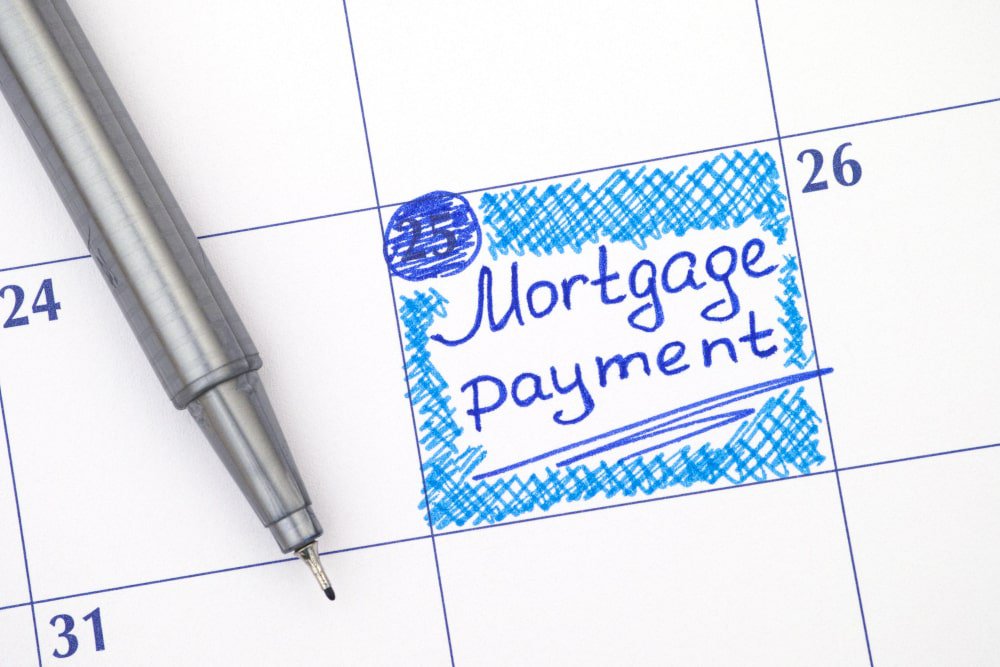Can You Postpone Monthly Mortgage Payments or Change Their Schedule?

Making monthly payments is an essential part of any mortgage repayment plan. Unfortunately, sometimes unforeseen circumstances make sticking to this schedule difficult. If you have ever found yourself in a similar situation, you may be wondering whether you can defer your mortgage payments and how long you can do so for. In this guide, we explore the ins and outs of monthly mortgage payment deferrals and the impact they may have on your loan and on your credit score.
What Are Monthly Payments?
Before understanding how to defer your monthly mortgage payments, it is first important to understand what they consist of. Here are some common elements:
- Principal Payments. The principal represents the sum of money that you have actually borrowed from your lender. It is the mortgage amount you were approved for that was used towards the payment of your house. When you defer your monthly payments, the principal amount you have to pay back is unaffected, but you must pay it back by a later date specified by your lender.
- Interest. In order to justify lending you a large sum of money, your lender will charge you interest to ensure they also benefit from the transaction. Put simply, interest is the cost of borrowing money. It is represented as a percentage of your monthly principal payment , and may vary based on your mortgage contract. If you have a fixed mortgage rate, you will experience the same charge for each monthly payment. If you have an adjustable mortgage rate, you may find yourself paying more or less each month, based on the market interest rate at the time. If you have a true variable mortgage rate, then your monthly payment won’t change unless you hit the trigger point, but your amortization period will change if interest rates fluctuate. When you defer your monthly mortgage payments, you are also deferring the interest associated with that payment. When it comes time to pay up later down the line, you will be charged interest on the full sum of the principal plus the interest you deferred— increasing your costs potentially by thousands in the long-run.
- Property Taxes. Some borrowers choose to pay their property taxes independently, but most Canadians allow their lender to pay on their behalf. If this is the case for you, your property tax charges will make up a portion of your monthly mortgage payments. Even if you are allowed to defer your principal and interest payments, some lenders will not allow you to defer your property tax dues. In this case, you may have to continue paying your monthly tax bills even if you defer other parts of your monthly payments.
For a deeper dive into each part of your payment, check out our guide on mortgage payment schedules .
What Is Mortgage Deferral?
A mortgage payment deferral is an agreement between you and your lender that allows you to postpone a payment that is currently due, and pay it off up to six months later. It is important to note, however, that deferment is only a temporary suspension of your regular payments and is not an option available to every borrower. Oftentimes, mortgage deferrals are used as a means of surviving financial hardship or are exercised in response to an unforeseen financial misfortune. During the peak of the COVID 19 pandemic, we saw many institutional mortgage lenders offering mortgage deferrals of up to 6 month’s worth of payments.
Is Mortgage Deferral Worth It?
A payment deferral can be a huge relief if you are currently struggling financially. However, it is important to also consider the financial consequences of this decision. Firstly, your interest fees will continue to compound even if you defer your monthly payment. This will result in doubly-applied interest on your deferred payment, a longer overall mortgage term, and a potentially significant increase in your overall mortgage costs.
Another thing to consider is the impact a deferred payment can have on your credit score. When your credit score is calculated, its quality depends heavily on your ability to make your debt repayments in a timely manner. Deferring your mortgage payments can indicate to creditors that you are not as fiscally responsible or secure as someone who consistently made their payments, and may negatively impact your score as a result— increasing your interest rate on future loans. This will only happen if your lender reports your deferral as a late payment. If you enter into a deferral agreement with your lender ahead of time, and eventually make your payment at the agreed upon deferral date, your credit score should not be negatively impacted at all depending on how your lender reports it to the credit bureaus.
At the end of the day, only you can know if mortgage deferral is right for you, but here are a few of the most important things to remember:
- Deferring a payment does not forgive your loan. You are still responsible for that amount and will need to cover it eventually.
- In the long-run, payment deferral increases the overall cost and length of your mortgage.
- In order to maintain your credit score, you must enter into a clear agreement with your lender and ensure that they do not report your deferral to the credit bureau as a late payment.
- If you want to refinance your mortgage following a deferral or series of deferrals, you might first be required to re-establish the consistency of your payments before applying for the mortgage refinance. This is not the case however when refinancing with many of the alternative mortgage lenders who we work with. For more information on how to successfully refinance your mortgage, check out our comprehensive guide .
How to Defer Your Mortgage
If you are thinking of deferring your mortgage, you should reach out to your mortgage broker or lender to discuss their policies on deferral and your options as a borrower. Your lender may also recommend alternative courses of action, here are a few examples of what that may entail:
- Term adjustment. In some cases, your lender may be willing to re-write your mortgage contract and adjust the length of your term. By increasing the amount of time you have to pay back your loan, you spread your principal over more payment periods, thereby reducing the amount due each month. While a term adjustment will also increase your overall interest, it would be less impactful than a payment deferral or late payment.
- Forbearance. Under a forbearance, your lender may defer only a portion of your monthly payment, allowing you to make part of the payment on time. This option can help reduce your overall interest costs as compared to a traditional deferral.
- Loan Insurance. If you are currently covered by loan insurance, also known as mortgage protection insurance, you may have some protection against unforeseen financial misfortune. Payment insecurity caused by illness, disability, death, and/or unexpected job loss may be covered by your insurer. Your broker or lender can check whether you opted into this type of insurance in your mortgage contract. It is important to note that this is not the same as mortgage default insurance.
Of course, the ability to defer your mortgage hinges primarily on your lender’s terms and policies. If you are looking to apply for a mortgage in the near future, and want the flexibility of mortgage deferral, our Clover Mortgage brokers can help connect you with lenders who specifically allow mortgage deferrals. We can also look into your unique financial circumstances and help you get pre-approved for a manageable mortgage amount while navigating options and add-ons such as loan insurance.
Contact Clover Mortgage to book your free consultation today!
Resources





